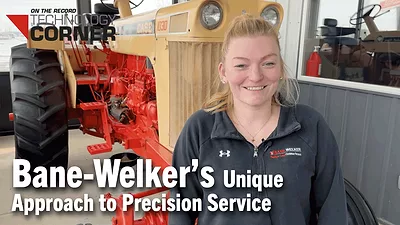If you’re selling, servicing or otherwise promoting the use of precision farming technologies to multi-generational farm operators — that is father-son producers — it would be a mistake to automatically assume that you should focus your efforts solely on the son. While they may disagree about equipment brands, farming methods or any number of other things, truth be known, when it comes to precision farming, these two are partners in crime.
The worst thing you can do is ignore or go around older producers who you might assume don’t or won’t get it.
The lead feature story in the April/May issue of Farm Equipment addresses the issue of selling to multi-generation farm operations. It’s largely based on surveys and personal interviews conducted by Paulsen Marketing, an ag marketing firm out of Sioux Falls, S.D., in which they examined multi-generational decision-making. They researched 14 different farm families in Iowa, Kansas, South Dakota, Minnesota, Missouri, Illinois and Nebraska. They spoke with two different farming demographics: older row-crop producers, ages 46-70, and younger row crop producers, ages 25-45.
One of the main conclusions they reached is dealers can benefit most when they understand and merge the viewpoints older and younger generations bring to the purchase decision.
“The older generation learned lessons of their fathers during the Depression and the crises they saw during the 1980s … for every rise there’s a fall. They remember what things used to cost. Younger producers don’t have that history. They see the possibility and the potential,” says Mark Smither, Paulsen’s vice president and strategic director.
They found that technology is one area where the generational perspectives can and do merge. Today’s precision ag technology appeals to the tech-savvy younger generation and the efficiency concerns of the older generation.
JR Dale, 67, who farms with his son Trevor Dale, 35, in Fertile, Minn., relies on Trevor when it comes to utilizing precision technologies. “One thing I’m acutely aware of is the generational differences. Twenty years ago, I was right up to speed on technology and crop production inputs. Now, I’m lacking and Trevor is right up to date,” says JR.
Todd Kunau of Kunau Implement says veteran farmers have seen for themselves how the technology can extend their productivity.
“They’ve never done so much in a day at any age,” Kunau says. “On our field days we get growers out there in the equipment — two and even three generations. The older generation is becoming more comfortable with the technology because they have done the research and they know the younger generation can make it work. The older generation appreciates the return of the investment and the younger generation is driven by how exciting the equipment is,” Kunau says. “Now, there’s such integration between all the equipment. The next frontier is here.”
In other words, making precision farming technologies work in the field is one thing that fathers and sons can agree on and work toward as partners. So, you need to sell them like you would any partnership.






